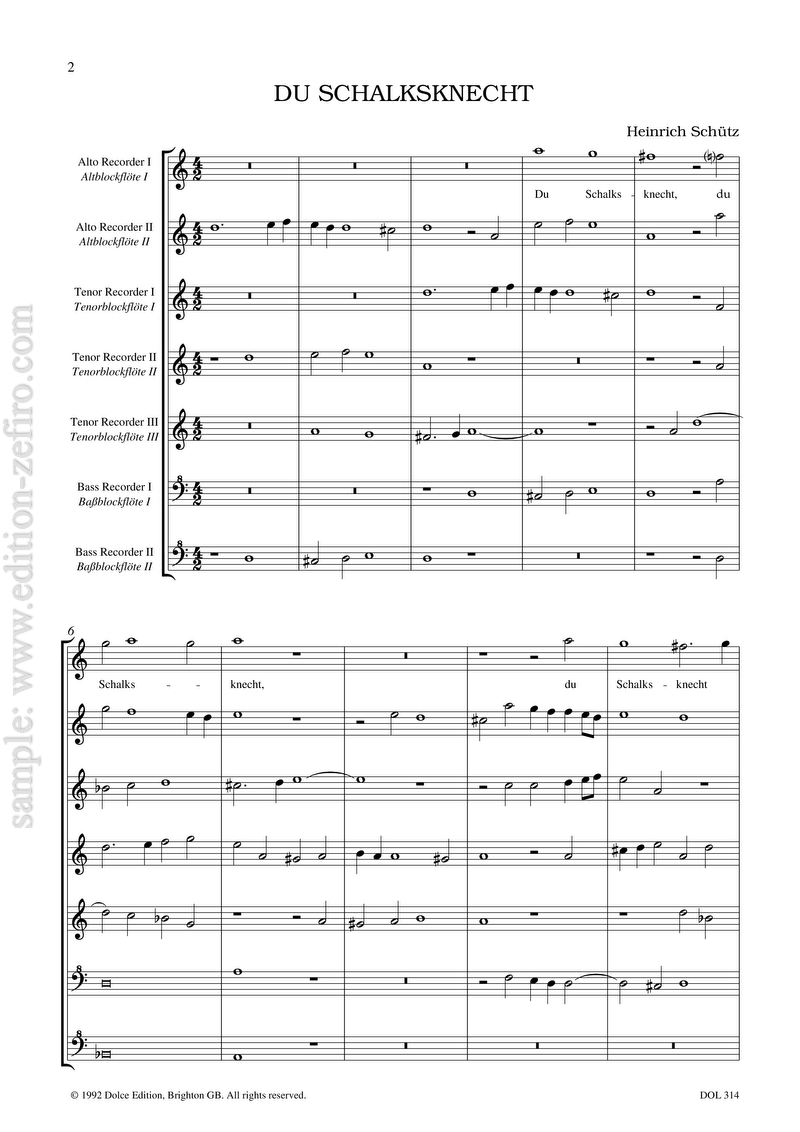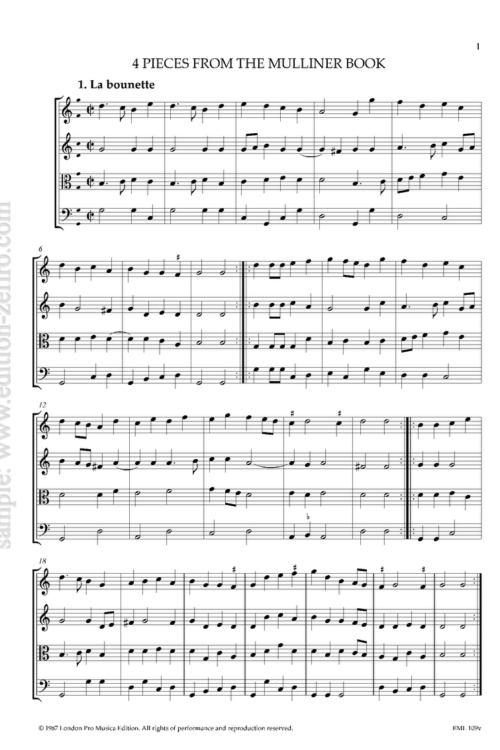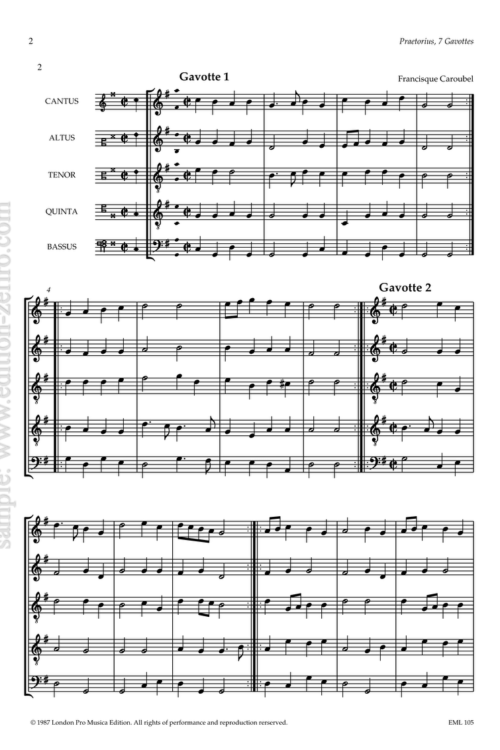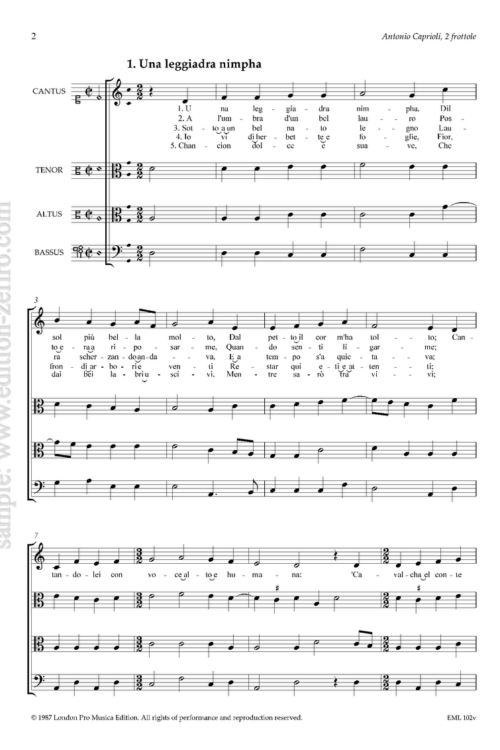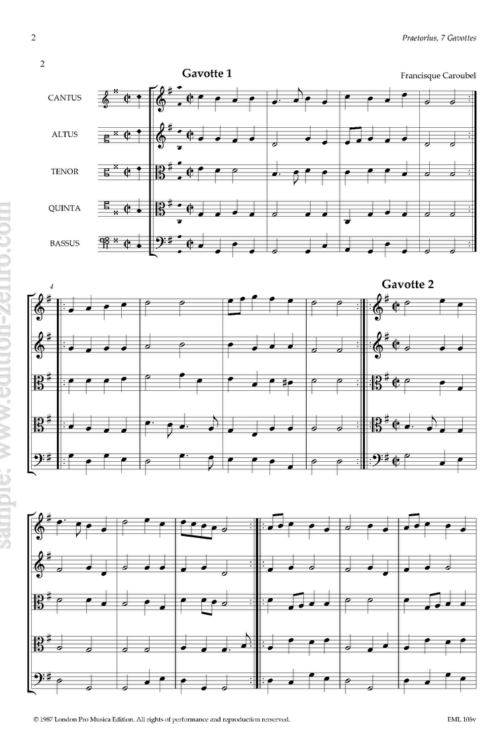This highly expressive and emotional piece is one of a group of motets that appear at the end of Schütz’s Geistliche Chormusik, of 1648, in which only one or two voices are texted, with the implication that the remaining parts were intended for instruments.
The New Testament text is from Matthew, ch. 18, vv. 32-3, and is a warning against the danger of double standards: the Schalksknecht is the gentleman who, having just been let off a huge debt by his master, immediately turns round and puts the boot in on a fellow servant who owes him a small debt. The piece appears originally at a remarkably low pitch, a fifth lower than that at which it is printed here (treating recorders as four-foot instruments), so would have been perhaps intended for tenor voice and six viols or sackbuts.
In fact the top part does not differ from the other parts in any important respect, so it makes perfect sense to perform the piece purely instrumentally. The music obviously needs to be well sustained, but the phrases should also be shaped, so that the last note of each is weak (alternative fingerings), especially before a rest. Attention should also be paid to the tension and resolution provided by the frequent suspensions.
(Bernard Thomas)


